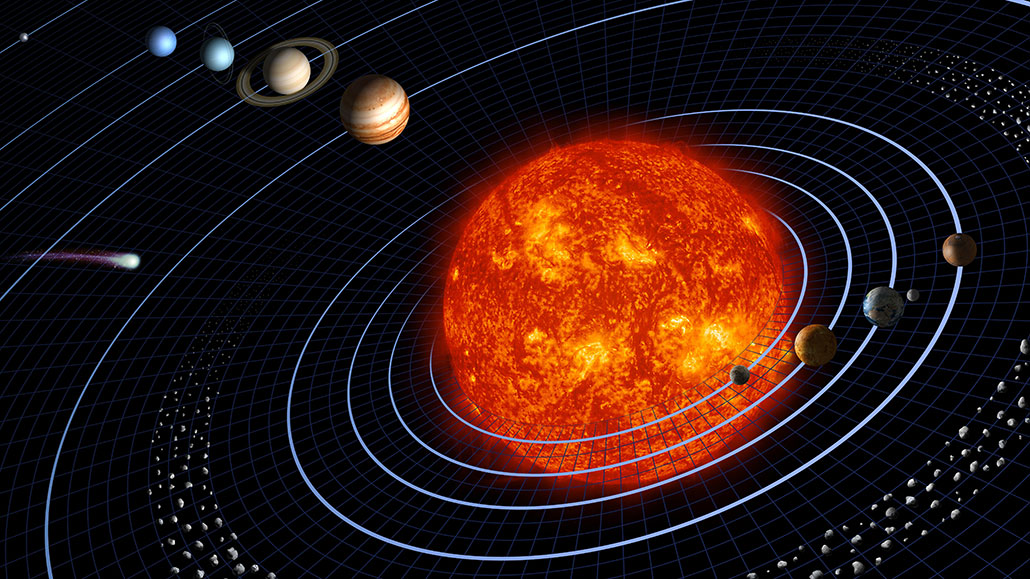
asteroid: A rocky object in orbit around the sun. Most asteroids orbit in a region that falls between the orbits of Mars and Jupiter. Astronomers refer to this region as the asteroid belt.
criteria: (sing. criterion) The standards, rules, traits or other things used to make a judgment or determination about something.
current: A fluid — such as of water or air — that moves in a recognizable direction. (in electricity) The flow of electricity or the amount of charge moving through some material over a particular period of time.
dwarf planet: One of the solar system’s small celestial objects. Like a true planet, it orbits the sun. However, dwarf planets are too small to qualify as true planets. Prime examples of these objects: Pluto and Ceres.
exoplanet: Short for extrasolar planet, it’s a planet that orbits a star outside our solar system.
force: Some outside influence that can change the motion of a body, hold bodies close to one another, or produce motion or stress in a stationary body.
galaxy: A group of stars — and usually dark matter — all held together by gravity. Giant galaxies, such as the Milky Way, often have more than 100 billion stars. The dimmest galaxies may have just a few thousand. Some galaxies also have gas and dust from which they make new stars.
gravity: The force that attracts anything with mass, or bulk, toward any other thing with mass. The more mass that something has, the greater its gravity.
Jupiter: (in astronomy) The solar system’s largest planet, it has the shortest day length (10 hours). A gas giant, its low density indicates that this planet is composed of light elements, such as hydrogen and helium. This planet also releases more heat than it receives from the sun as gravity compresses its mass (and slowly shrinks the planet).
mass: A number that shows how much an object resists speeding up and slowing down — basically a measure of how much matter that object is made from.
orbit: The curved path of a celestial object or spacecraft around a galaxy, star, planet or moon. One complete circuit around a celestial body.
planet: A large celestial object that orbits a star but unlike a star does not generate any visible light.
Pluto: A dwarf planet that is located in the Kuiper Belt, just beyond Neptune. Pluto is the tenth largest object orbiting the sun.
solar: Having to do with the sun or the radiation it emits. It comes from sol, Latin for sun.
solar system: The eight major planets and their moons in orbit around our sun, together with smaller bodies in the form of dwarf planets, asteroids, meteoroids and comets.
star: The basic building block from which galaxies are made. Stars develop when gravity compacts clouds of gas. When they become hot enough, stars will emit light and sometimes other forms of electromagnetic radiation. The sun is our closest star.
universe: The entire cosmos: All things that exist throughout space and time. It has been expanding since its formation during an event known as the Big Bang, some 13.8 billion years ago (give or take a few hundred million years).
Read Again https://www.sciencenewsforstudents.org/article/scientists-say-planetBagikan Berita Ini















0 Response to "Scientists Say: Planet - Science News for Students"
Post a Comment